yves / 30 / agender lesbian (but it's complicated) they/them/their pronouns, please
Don't wanna be here? Send us removal request.
Photo

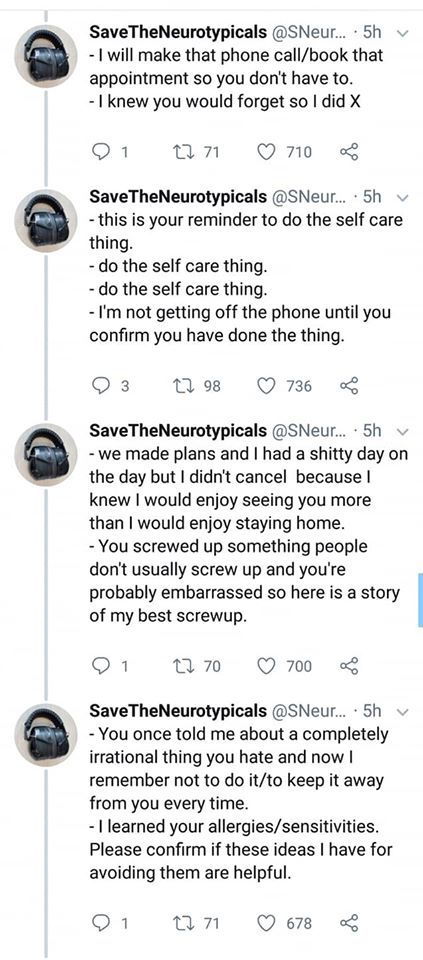
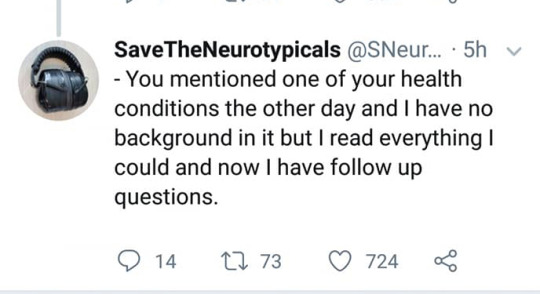
Also:
“I see you’re sick/sad! Let me do my best to distract you from that so you can stop thinking about it and feel better!”
“You’re really excited about this thing and I don’t understand it but I’m trying to be excited about it too because you love it!”
80K notes
·
View notes
Text
The Palestine Reader
The following is a collection of articles, essays, and books on Palestine. These are not introduction texts to the question of Palestine or the Palestinain-Israeli “conflict”. If you need one read The Palestine-Israel Conflict by Gregory Harms and Todd Fery. Further, this is not an “unbiased” or “neutral” readng list. Everything listed below is counter-hegemonic. I feel absolutely no need to provide anything from the Zionist or Israeli point-of-view when that is the dominant narrative. With that said, I believe this provides a diverse, but in no means comprehensive, overview of the discourse on Palestine. A continuously updated page of this list can be found here.
On Theory
Orientalism by Edward Said
Orientalism Reconsidered by Edward Said
The Question of Palestine by Edward Said
Reading Said in Hebrew by Ella Shohat
Notes on the “Post-Colonial” by Ella Shohat
On History
History of Palestine by Dr. Mohsen Mohammed Saleh
Sabra and Shatila: September 1982 by Bayan Nuwayhed al-Hout
Peace and its Discontents by Edward Said
On Being Palestinian
What It Means to be Palestinian by Dina Matar
A Narrative of Palestinian Dispossession by Samia Costandi
The Palestinian Exile as Writer by Jabra I. Jabra
My People Shall Live by Leila Khaled
Memoirs, 1948 Part I by Fauzi Al-Qawuqji
Memoirs, 1948 Part II
Palestinian Identity and the Performance of Catastrophe by Ihab Saloul
On Zionism
Zionism from the Standpoint of its Victims by Edward Said
Zionism from the Standpoint of its Jewish Victims by Ella Shohat
Jewishness and the Critique of Zionism by Judith Butler
The Invention of the Mizrahim by Ella Shohat
Jewish Fundamentalism in Israel by Israel Shahak and Norton Mezvinsky
Jewish History, Jewish Religion by Israel Shahak
The Ends of Zionism by Joseph Massad
The Persistence of the Palestinian Question by Joseph Massad
On Imperialism and Settler Colonialism in West Asia by Jamil Hilal
The Hidden History of Zionism by Ralph Schoenman
How the Zionists Took Over Palestine by Adel Safty
Imperial Israel and the Palestinians by Nur Masalha
After Zionism by Antony Loewenstein and Ahmed Moor
On the Holocaust
Respecting the Holocaust by Howard Zinn
The Holocaust: Learning the Wrong Lessons by Boaz Evron
The Victimhood of the Powerful by Jennifer Peto
On Media
Propaganda, Perception, and Reality by William A. Cook
Israeli Cinema an interview with Ella Shohat
Israeli Cinema by Ella Shohat
Palestinian Cinema by Nurith Gertz and George Khleifi
On Al Nakba
The 1948 Ethnic Cleansing of Palestine by Ilan Pappe
The Ethnic Cleansing of Palestine by Ilan Pappe
The Saga of Deir Yassin
The Fall of Lydda by Spiro Munayyer
Returning to Kafr Bir'im
How Palestine became Israel by Stephen Hallbrook
The Palestinian Exodus of 1948 by Simha Flapan
Why Did the Palestinians Leave by Walid Khalidi
Selected Documents on 1948
The Limits of the New Israeli History by Joel Beinin
On Genocide
Genocide or Erasure of Palestinians by Kathleen and Bill Christison
Israel’s Slow-Motion Genocide in Occupied Palestine by Steve Lendman
Ongoing Palestinian Genocide by Gideon Polya
The Lessons of Violence by Chris Hedges
The Brutal Siege of Gaza Can Only Breed Violence by Karen Koning AbuZayd
The Olive Trees of Palestine Weep by Sonja Karkar
Slouching toward a Palestinian Holocaust by Richard Falk
Gaza is Dying by Patrick Cockburn
Israeli Immunity for Genocide by Andrea Howard
Palestinian Misery in Perspective by Paul De Rooij
A Slow, Steady Genocide an interview with Tanya Reinhart
Gaza’s Holocaust by Dr. Elias Akleh
Genocide Hides Behind Expulsion by Adi Ophir
The British in Palestine, A Conveniently Forgotten Holocaust by Robert Fisk
European Collusion in Israel’s Slow Genocide by Omar Barghouti
Genocide in Gaza by Ilan Pappe
Genocide Among Us by Curtis F. J. Doebbler
Bleaching the Attrocities of Genocide by Kim Petersen
The Rape of Palestine by William A. Cook
Israel Plots Another Palestinian Exodus by Jonathan Cook
Slow Motion Ethnic Cleansing by Uri Avnery
Disappearing Palestine by Jonathan Cook
The Problem With Israel by Jeff Halper
Gaza in Crisis by Noam Chomsky and Ilan Pappe
Drying Out the Palestinians
Israel’s Latest Assault on Gaza by Norman Finkelstein
To Gaza I Did Not Go by Gideon Levy
Gaza, the World’s Largest Open-Air Prison by Noam Chomsky
The Most Humane Little Checkpoint by Amira Hass
On BDS
BDS: Winning Justice for the Palestinian People
Why Boycott Israeli Universities?
The Necessity of Cultural Boycott by Ilan Pappe
Companies Supporting Israeli Occupation
On Solutions
Two-State Illusion by Ian S. Lustick
Relative Humanity: The Essential Obstacle to a One-State Solution by Omar Barghouti
Where Now For Palestine? by Jamil Hilal
23K notes
·
View notes
Photo
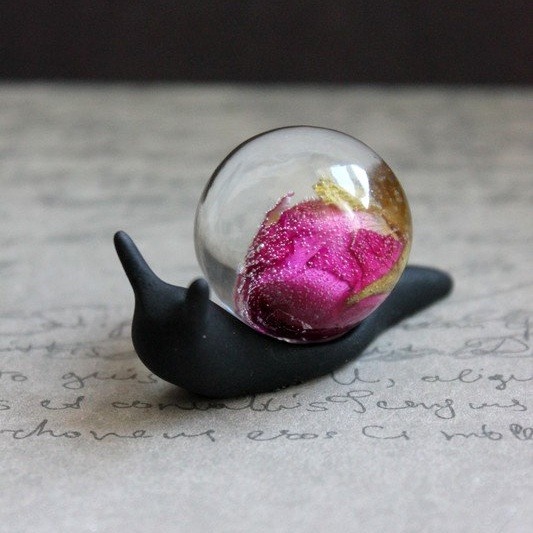


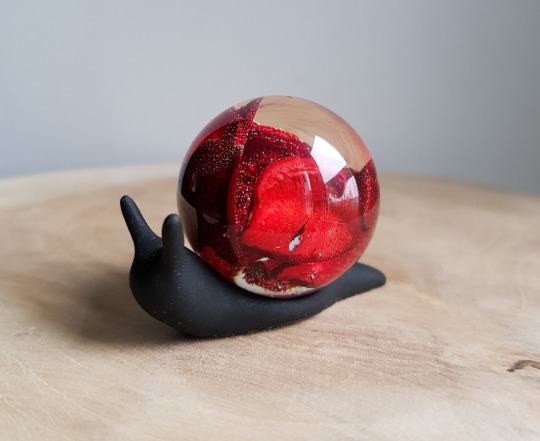
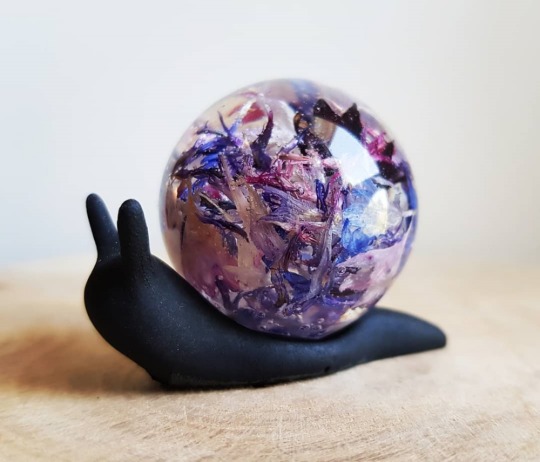
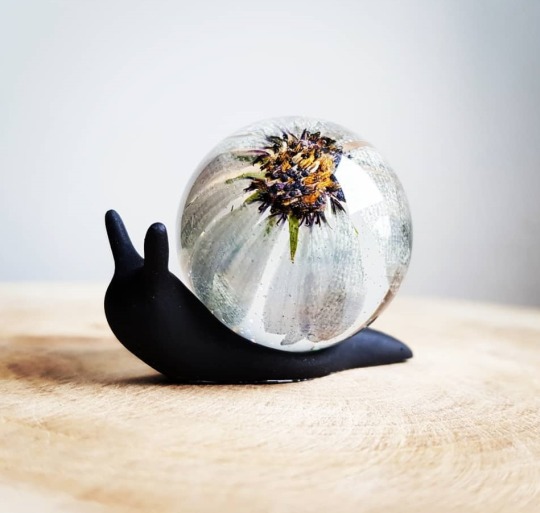



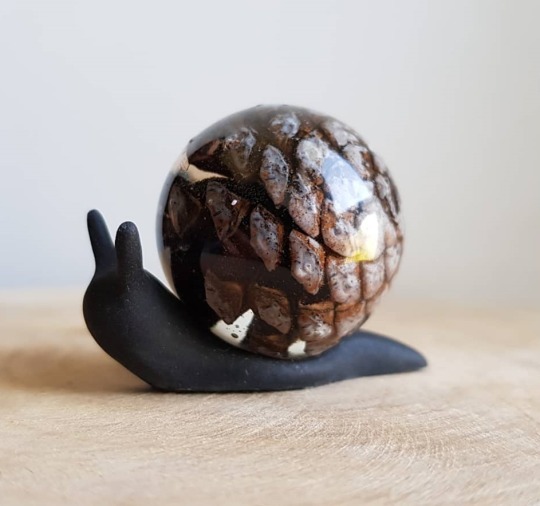
Real Flower Snail Figurines
Cleophea Resinea on Etsy
16K notes
·
View notes
Photo

On this day, 9 December 1959 the British government circulated a secret memo as part of Operation Legacy: a plan to destroy official records of crimes of the British Empire in its colonies. The memo ordered the burning of files, although subsequently the government also permitted “for documents to be packed in weighted crates and dumped in very deep and current-free water at maximum practicable distance from the coast”. Sadly Operation Legacy proved highly successful, and Britain’s appalling colonial legacy is not at all well-known in the UK. So if you can, please consider supporting WCH, to bring to light these events which many of those in power would rather be forgotten. You can support us and get access to exclusive content on https://patreon.com/workingclasshistory https://www.facebook.com/workingclasshistory/photos/a.296224173896073/1287374841447663/?type=3
181 notes
·
View notes
Text
Hey what happens if a warlock's patron dies?
38K notes
·
View notes
Text
Life doesn’t end at 23. 30 isn’t old. Fetishising youth as the ultimate desirable characteristic in a person is actively harmful to both young and old people. Some of us lost our teenage years to abuse and recovery, and can only begin living when we’re at a different life stage. Literally knock it off, the lot of you.
217K notes
·
View notes
Text

Took me awhile to make this mossy boy so give him some love 🌿🌱🍃
2K notes
·
View notes
Photo

Mary Oliver, from “the fourth sign of the zodiac” published in Blue Horses
53K notes
·
View notes
Link
In a nutshell, “fawning” is the use of people-pleasing to diffuse conflict, feel more secure in relationships, and earn the approval of others.
It’s a maladaptive way of creating safety in our connections with others by essentially mirroring the imagined expectations and desires of other people.
Often times, it stems from traumatic experiences early on in life, as I described in last month’s article.
It resonated with so many you, and since then, I’ve gotten a lot of questions on how to recognize this type of response in ourselves, particularly in our day-to-day interactions.
I can only speak from personal experience, but there are a number of commonalities among “fawn” types that I think are worth noting.
I’m going to share seven struggles that a lot of us seem to experience as people-pleasers. If it sounds familiar, you, my friend, probably know a thing or two about fawning.
read more
8K notes
·
View notes
Note
I think I'm afraid that I don't want to get better
A lot of people with mental illness do not want to get better. Or at least go through a period where they don’t want to get better. There’s many reasons for this: fueling off of your pain, fear of change, fear of the unknown, avoiding the pain/difficulty of recovery, not believing you’re worth recovery, not believing you can get better, not “believing in therapy/treatment”…ect. I think this in part comes from how many of us have been taught to believe that negative equals realistic and positive equals unrealistic. You are capable of getting better. You are capable of recovery. And deep down you do want to get better, there are just many things that are keeping you from that desire. But you can only start recovery when you consent fully to getting better, you have to commit to it. Here are some quotes that really helped me with this, I hope you’ll find them helpful too:
“Do not call the inability to start laziness. Call it fear. Stop yelling at yourself. Be nice. Call fear by its right name.”
“Many experience a sudden disinterest in recovery at some point. To therapists, this surge of sudden disinterest (“It doesn’t matter”) is a routine coping device employed to deny pain and ward off vulnerability.”
“As with any rupture, there is both tension and relief. Long-seated depression breaks up like an ice floe. Long-frozon feelings thaw, melt, cascade, flood, and often overrun their container (you). You may find yourself feeling volatile and changeable. You are.”
“At the root of a successful recovery is the commitment to puncture our denial, to stop saying, ‘It’s okay’ when in fact it’s something else.”
“Most blocked creatives have an active addiction to anxiety. We prefer the low-grade pain and occasional heart-stopping panic attack to the drudgery of small and simple daily steps in the right direction.”
“It takes grace and courage to admit and surrender our bad coping devices. Who wants to? Not while they are still working! Of course, long after they have stopped working, we hope against hope that this time they will work again.”
“We’ve gotten brave enough to try recovery, but we don’t want the universe to really pay attention. We still feel too much like frauds to handle some success. When it comes we want to go.”
1K notes
·
View notes
Text
just saw a wild new iteration of "women and femmes" on an event flyer that said "currently or formerly identifies as female" i hate university
56K notes
·
View notes





